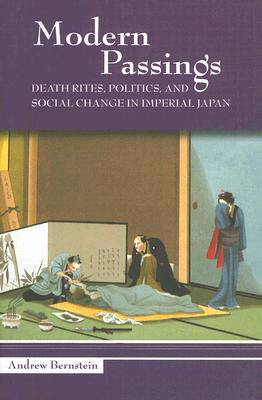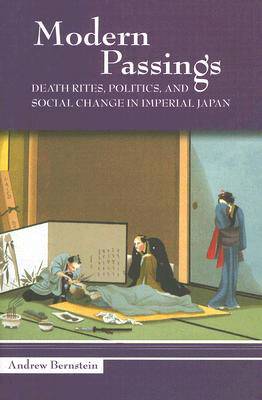
- Retrait gratuit dans votre magasin Club
- 7.000.000 titres dans notre catalogue
- Payer en toute sécurité
- Toujours un magasin près de chez vous
- Retrait gratuit dans votre magasin Club
- 7.000.0000 titres dans notre catalogue
- Payer en toute sécurité
- Toujours un magasin près de chez vous
62,95 €
+ 125 points
Récompenses
Description
What to do with the dead?
In Imperial Japan, as elsewhere in the modernizing world, answering this perennial question meant relying on age-old solutions. Funerals, burials, and other mortuary rites had developed over the centuries with the aim of building continuity in the face of loss. As Japanese coped with the economic, political, and social changes that radically remade their lives in the decades after the Meiji Restoration (1868), they clung to local customs and Buddhist rituals such as sutra readings and incense offerings that for generations had given meaning to death. Yet death, as this highly original study shows, was not impervious to nationalism, capitalism, and the other isms that constituted and still constitute modernity. As Japan changed, so did its handling of the inevitable. Following an overview of the early development of funerary rituals in Japan, Andrew Bernstein demonstrates how diverse premodern practices from different regions and social strata were homogenized with those generated by middle-class city dwellers to create the form of funerary practice dominant today. He describes the controversy over cremation, explaining how and why it became the accepted manner of disposing of the dead. He also explores the conflict-filled process of remaking burial practices, which gave rise, in part, to the suburban "soul parks" now prevalent throughout Japan; the (largely failed) attempt by nativists to replace Buddhist death rites with Shinto ones; and the rise and fall of the funeral procession. In the process, Bernstein shows how today's "traditional" funeral is in fact an early twentieth-century invention and traces the social and political factors that led to this development. These include a government wanting to separate itself from religion even while propagating State Shinto, the appearance of a new middle class, and new forms of transportation. As these and other developments created new contexts for old rituals, Japanese faced the problem of how to fit them all together. What to do with the dead? is thus a question tied to a still broader one that haunts all societies experiencing rapid change: What to do with the past? Modern Passings is an impressive and far-reaching exploration of Japan's efforts to solve this puzzle, one that is at the heart of the modern experience.Spécifications
Parties prenantes
- Auteur(s) :
- Editeur:
Contenu
- Nombre de pages :
- 256
- Langue:
- Anglais
- Collection :
Caractéristiques
- EAN:
- 9780824828745
- Date de parution :
- 31-01-06
- Format:
- Livre relié
- Format numérique:
- Genaaid
- Dimensions :
- 162 mm x 229 mm
- Poids :
- 530 g

Les avis
Nous publions uniquement les avis qui respectent les conditions requises. Consultez nos conditions pour les avis.








